SKF vs Timken vs MOOG: Essential Differences
Stylethority is reader-supported. When you buy through links on the site, we may earn a commission.
If your wheel bearings are shot, there’s a very high chance you’re looking at either of these three for a replacement. Time after time, I’ve seen people ask for some benchmarking between them.
I’ll be very clear: While SKF vs Timken is a fair matchup, either SKF or Timken vs MOOG isn’t. The latter lags behind in terms of design, durability, and performance.
Why? A major reason is SKF and Timken are generally making their own hubs from start to finish. They invest in continuous R&D improvements. MOOG, on the other hand, simply repackages/distributes assemblies.
I’d rank these three in the following way:
- Best overall quality and performance: SKF like this X-Tracker beauty.
– - Best value & king of general usage: Timken parts (check a top-rated one).
– - Best for budget & wide vehicle coverage: MOOG with bearings like this one.
I’ll be covering a lot of info on all three brands, including design, R&D capabilities, and warranty.
Here’s a quick overview of where each of them excels if you’re short on time:
| Product | Image | ||
|---|---|---|---|
|
Premium quality
|
SKF X-Tracker
|
Check Prices & Fit |
| Product | Image | ||
|---|---|---|---|
|
Best overall value
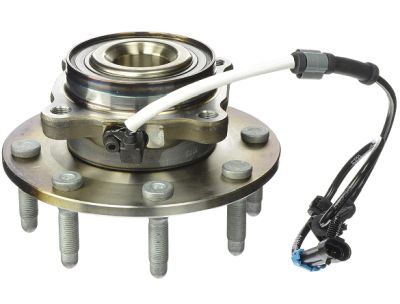
|
Timken Assembly
|
Check Prices & Fit |
| Product | Image | ||
|---|---|---|---|
|
For the budget-minded
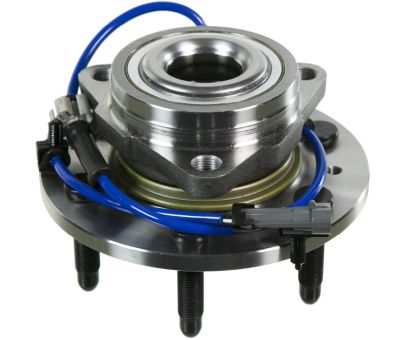
|
MOOG Assembly
|
Check Prices & Fit |
First, let me expand on what I said earlier. SKF and Timken make their bearings fully in-house. That’s why you see them having constant innovation in the wheel bearing and hub assemblies they make.
The current mass-produced Timken and SKF are the 3rd generation of wheel bearings. SKF actually has the X-Tracker (see examples) which is technically a 4th generation bearing.
I’ll discuss what makes it truly next-gen (extra stiffness, better longevity, trucks handling like cars) in a few paragraphs.
In comparison, MOOG simply repackages/distributes parts made by subcontractors. As such, the brand’s been more stagnant in terms of hub assembly innovation specifically.
Let’s first talk about warranties, however. They do matter.
Cracking the warranty code
Warranty terms and periods are something I’m always on the lookout for with more expensive aftermarket parts.
MOOG is very straightforward with its terms. The company’s wheel bearings come with a 3-year/36k mile warranty. Whichever happens first is the deciding factor here.
Timken is a bit slippery. Usually, the company gives you a 1-year warranty. However, I’ve seen some reports of people getting a 3-year warranty. I couldn’t find any official mention of that, though.
I’m pleased with SKF. They used to give shorter warranties which have been bumped up over the years. SKF used to have a 3-year warranty, but this has been increased to 5 years since early 2023.
Here’s the relevant news piece on the warranty update. Keep in mind that some SKUs on the market are older parts, so maybe they’ll stick to the 3-year warranty for these.
With the warranties cleared up, let’s move on to the real deal. I’ll start with the two main players in this wheel bearing comparison.
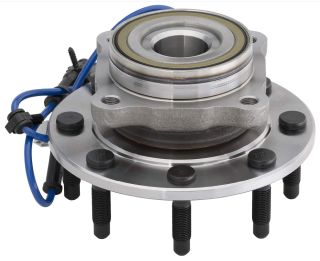
A generally cheaper approach to wheel bearings. Great for standard users and vehicle applications, but might be insufficient for high-performance/high-load requirements.
SKF vs Timken as the two leaders
These two are as good as it gets if you’re going non-OEM with your replacement parts. In fact, some Timken or SKF product lines exceed OE options.
As I pointed out, the majority of what these two have on the market are their 3rd gen wheel bearings. Some of the more prominent 3rd gen features are:
- Multi-lip seal design to shield against debris/contaminants and retain grease better.
– - Improved grease quality with a formula that reduces friction while operating.
– - Extra strengthened wheel studs to keep things secure and intact.
– - Reduced bearing weight and strain on components.
– - ABS sensors with reinforced ABS cords.
You’ll see all of these in most modern wheel bearings. Even MOOG scores all of these features, but at a slight downgrade – SKF and Timken have better quality control over the design and materials used.
The difference in Timken vs SKF with 3rd-generation bearings mainly lies in availability. Timken is easier to come by and covers way more vehicle applications.

The staple 3rd gen wheel bearing & hub assembly in terms of bang for your buck. Well-designed, durable, and scoring high in terms of performance.
However, SKF has something no other hub assembly brand offers yet:
Yes, I’m talking about the X-Tracker assemblies which are essentially a 4th generation option.
X-Tracker parts are asymmetric. Picture this: there are two rows involved inside. The outboard one has a bigger diameter and has more balls compared to the inner one.
What this achieves is improved load capacity, longer bearing life, and vastly improved stiffness of the assembly. SKF claims +50% stiffness over tapered bearings; not sure if it’s 50%, but it is significantly buffed.
In turn, all of this leads to a) tighter cornering, b) more control when accelerating, and c) heavy-duty applications (truck) handling more like a car on the road.
In short, a smoother driving experience for high-performance vehicles and improved parts longevity.
| Product | Image | ||
|---|---|---|---|
|
Premium quality
|
SKF X-Tracker
|
Check Prices & Fit |
| Product | Image | ||
|---|---|---|---|
|
Best overall value

|
Timken Assembly
|
Check Prices & Fit |
MOOG vs Timken or SKF:
A slight step behind
Don’t get me wrong: Moog’s approach to wheel bearings ain’t half-bad. The company still delivers decent mid-grade replacement options.
However, it’s still fairer to compare Moog to newcomers like TRQ than going for SKF or Timken.
Moog wheel bearings are less expensive on average. While lacking the sophisticated approach an X-Tracker hub might have, they’re well-fitted for the more casual driver.
The multi-lip sealing is there to help with keeping the grease in and debris out. The materials used are decent and live up to the 3-year warranty Moog slaps on their bearings. More than decent anti-rust properties, too.
To add to this, the company is good at servicing the ABS sensor. Sturdy cord, intelligent design, everything’s set up well to help the modern driver on a budget.
A big perk of MOOG hub assemblies (check top-rated options) is their widespread availability. Moog’s been a staple in the aftermarket for a hundred years. The company has parts for every single vehicle out there. What Timken and SKF might lack in terms of fit, Moog will have.
For general/casual use on lighter road conditions, you can consider Moog. Another alternative could be ACDelco parts for the owners of GM-related vehicles.
| Product | Image | ||
|---|---|---|---|
|
For the budget-minded

|
MOOG Assembly
|
Check Prices & Fit |
On manufacturing & production practices
Alright, this has always been a hot topic. I feel it’s gotten even hotter in the recent years (read: decade) of outsourcing expansion.
All three brands outsource, no need to lie here. These are old-school companies with a wide, very spread out supply chain policy and logistics map. It’s hard to pin them down to a specific country.
SKF is a bit of an outlier here, being Swedish and all.
I’ve seen reports of them ramping up manufacturing practices within the European Union. They redirected some UK facilities to Poznan in Poland in mid-2023 and invested ~$35 million in Italian facilities a few years back.
Historically, Timken has also stuck to better outsourcing practices. Recently, I’ve seen increasing reports of China or Mexico-stamped Timken boxes. This is not surprising, as even some SKF SKUs can be seen with such labels.
MOOG is a total mixed bag. China and Mexico are often seen, as well as non-EU locations like Turkey and sometimes even India. As the brand has a very wide variety of aftermarket parts, it makes sense for manufacturing practices to be even more spread across the globe.
The bottom line is quality, though.
Brands can all outsource to Chinese factories, but what matters is the quality control performed at these factories. And speaking generally, SKF and Timken’s quality control is better due to the more consolidated, firmer approach to wheel bearing and hub assembly production.
Concluding thoughts
SKF and Timken are still holding strong at the top of the wheel bearing aftermarket. Sure, some OE options are better, but they’re also 2x/3x more expensive on some applications.
While Moog follows in their footsteps, it’s still a decent option for the casual driver. I make Moog sound bad in comparison, but if you read other comparisons, you’ll see the brand’s still above average.
In general, I advise you to not cheap out on the bearing quality. Don’t go for no-name brands just because they’re 30% cheaper. Hub assemblies are intricately designed part that requires attention to detail and proper manufacturing.
Regardless of what choice you end up with, I’d appreciate it if you shoot a comment about your experiences. In case you chose either brand (or another like Koyo, for example), let me and the readers know how it went.
- Woolx vs Smartwool: Discussing Some Details - October 4, 2023
- Best Struts For Honda Accord & Element: What Works - September 22, 2023
- Bilstein vs Monroe Shocks: My Opinion On What Works Best - September 19, 2023

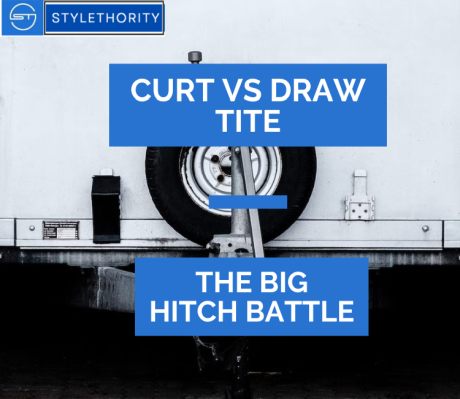
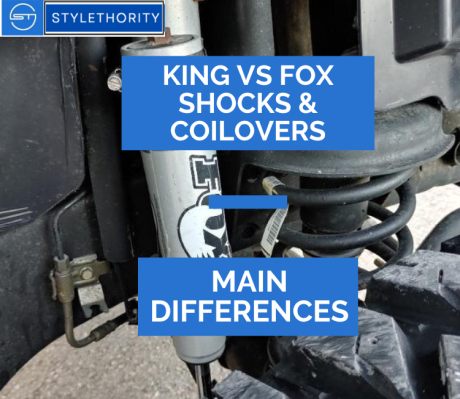
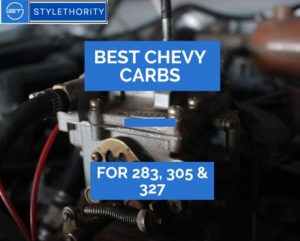
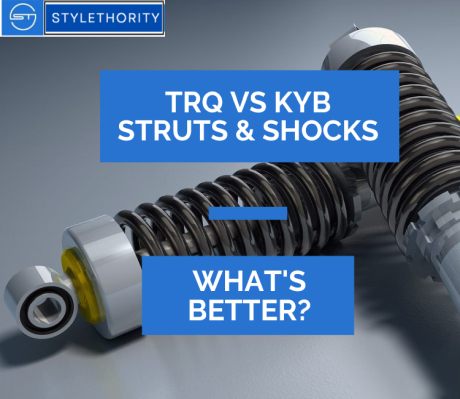
Xander. Would just like 2 say that ur article waz quite excellent on a subject that 2 a fellow motor-head waz found 2 be most comprehensive in it’z coverage indeed & deeply very much appreciated. Bcuz 2 & 4 me, even though most people pay very little attention 2 these partz, in my estimation, they happen 2 easily be 1 of the most import partz on a vehicle period. Will be eagerly awaiting ur next article. Peace yo.